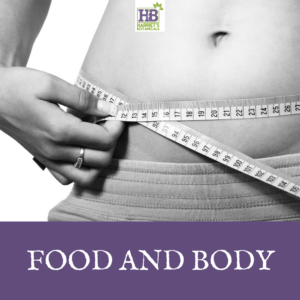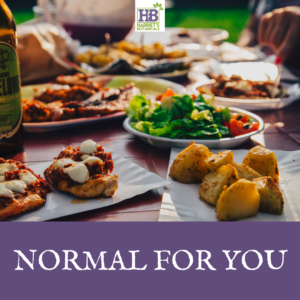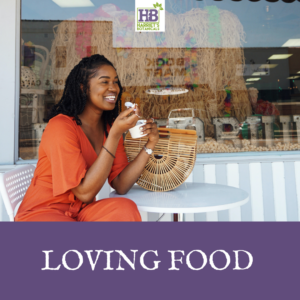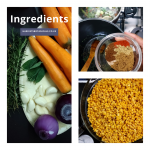Yes, food is a necessity, it is vital to our existence and maybe that’s why we spend so much of our time around it. How did you develop your relationship with food? Has it changed over time? Do you eat what you like or watch what you eat? Are there feelings of satiety and gratefulness or is it ridden with guilt and deprivation? We will discuss some of these ideas around how we form certain perspectives around food, meals, diet culture, and so on.
A love story
I love food! And to come to this realization without feeling shame took quite some time. My first memory around food was milk. I didn’t eat much at all, but always drank milk. Growing out of that phase and still a bit of a difficult eater, I was fortunate to have a meal every single day at home and in school – breakfast, lunch, tea, and dinner. Some snacks in between, some nights a treat and always cake for birthdays. We ate a mix of traditional and continental meals, lots of vegetables and salads with the meat, mostly chicken and fish and various carbs. We sat around the table – after saying grace – almost every evening for dinner. Thankfully, my relationship with food was built around that communal space where we caught up with each other and talked at the end of the day, or shared stories at the lunch hall after class or celebrated lots of different things, and even during the more difficult times. A meal was something you shared with people. I didn’t put much thought into what I ate, but deeply enjoyed the camaraderie around it.
It’s Complicated
In my teenage years, things began to change. There was a lot of western influence on food and diet and bodies. My appetite grew and so did my belly and then all the unsolicited comments. I never shared my insecurities, but deep inside I started to see food as something else. Emotionally, I learned to eat some of my feelings but not like a crutch, just to feel a bit better. My interest in junk food grew and when my parents weren’t around, soft drinks became my main source of hydration. In my last year of highschool, everything changed. I was diagnosed with hyperacidity and had many stomach infections, excess gut yeast, inflammation and suspicion of ulcers. I couldn’t eat anything without feeling excruciating pain in my abdomen. My relationship with food had to change. It was back to the basics and lots of education around food and vitality. I am so glad I can now enjoy food without the fear of shame, disease or worry because of being in tune with exactly what I need. The tiredness stopped, the bloating went away, the mental clarity was astounding. Each bite of food presents a piece of nourishment for my body. I love to see all the colors on my plate. I eat cake too and don’t feel guilty. The foundations we got as children, helped me get back on track on appreciating food and enjoying the vast flavors and abundant diverse sources of it available. Cooking for friends and family inspired more confidence in making delicious, wholesome and nutritious meals, using fresh herbs, adding zingy spices and enjoying those natural tastes that change with every season. I’m not saying I am a master and that I get it right all the time, but I am more attuned and learning to love food with each bite with my mind and body feeling thankful.

On the Ground, Things are Different
Talking about food with different groups of people, it became apparent my experience was quite unique and maybe only relatable to some of my friends and peers I grew up with. During a round table discussion, I realized some people’s relationship with food came from a lack of having enough in childhood. It was a scramble using a karai to eat as much as possible as fast as possible, and when they grew up and could afford more, a habit of overindulgence and always clearing the plate was formed. Then the weight issues began. Some people have different opinions on using condiments and spices or herbs…apparently, they’re not healthy or suitable for our local pallets. Others are very traditional and prefer nduma, githeri, muhogo and indigenous vegetables, meat is a treat once in a while. Some completely abandon this and eat junk food because it’s cheap and available on every street corner. Others prefer to have more carbs because it’s used to give energy such as a huge piece of ugali and smidgen of sukuma often seen in memes but also equally cost-effective. The access to more meat and nyama choma has also grown as we have larger farms built for mass production. More convenience has also made food accessible through apps or riders and kitchens can remain spotless for days on end. There is excess and there is lack. Habits keep changing as we are influenced with a lot more exposure to everything around food.
The D – Word
There is a word that causes ripples, rifts and raucous around food and nutrition and that’s DIET. According to the Merriam-Webster dictionary, the definitions for the diet are as follows:
“
1: Food and drink regularly provided or consumed.
2: Habitual nourishment.
3 : The kind and amount of food prescribed for a person or animal for a special reason.
4: A regimen of eating and drinking sparingly so as to reduce one’s weight going on a diet.”
Albeit all of these definitions, most people will associate diet with the last definition and there are plenty of these including Paleo, Vegan, Low-Carb, Dukan, Ultra-Low-Fat, Atkins, Keto, HCG, the Zone Diet and many more. Fad diets have riddled our society with fear around food. This is dangerous when people, young and old, consume damaging content on ideal diets, body shapes and weight leading to eating disorders, shame, anxiety, guilt, and bad relationships with food. On an anonymous forum, one contributor shared the following:
“Diet culture idealizes thinness and smaller body sizes above all else and places emphasis on body weight and body size as important health outcomes. It also equates smaller body size with not only better health, but a moral value. It makes one feel ‘lesser than’ for not measuring up to the ideal body shape/size that one may not ever be meant to achieve.”
These fad diets are exploited in marketing campaigns and deliberately pry on our emotions and psychological perceptions often providing a one-stop-shop solution that is fast and “effective”. The key takeaway is to have due diligence when embarking on a diet plan for whatever reason and to always consult qualified nutritionists and dieticians on the best plan for you. We are all individual and unique in that sense and what works for one person cannot be copy-pasted to another.

What is Normal?
There isn’t one normal standard when having a relationship with food. Talking to a few experts, they don’t focus on a single solution to fit everyone and look at the entire experience around your health, needs and culture around food. It takes time to know what your body needs and the sentiments shared by a dietician below may summarize this best:
“To me, normal eating is:
- Eating when you’re hungry and stopping when you’re full, most of the time.
- Sometimes eating because you’re sad, or because you’re happy, or bored, or because the cake looks good and you’re not hungry, but you want some.
- Not beating yourself up about eating in a way that diet culture says is too much or bad.
- Understanding that you are not what you eat and you’re not defined by your diet (or your weight).
- Understanding that food isn’t the enemy or something to be feared or controlled.
- About trusting your body and honoring your hunger and fullness cues.
- Taking advantage of meaningful food-related experiences and social interactions such as eating local foods when you travel without stressing about how many calories or carbs they contain.
…tuning in and learning to trust the body’s wisdom.” Abby Langer, 2019 (Self)
I hope this will help to start the conversation with yourself and those around you to demystify some of the false perceptions we have heard about nutrition and to begin to form a better relationship with your food.













